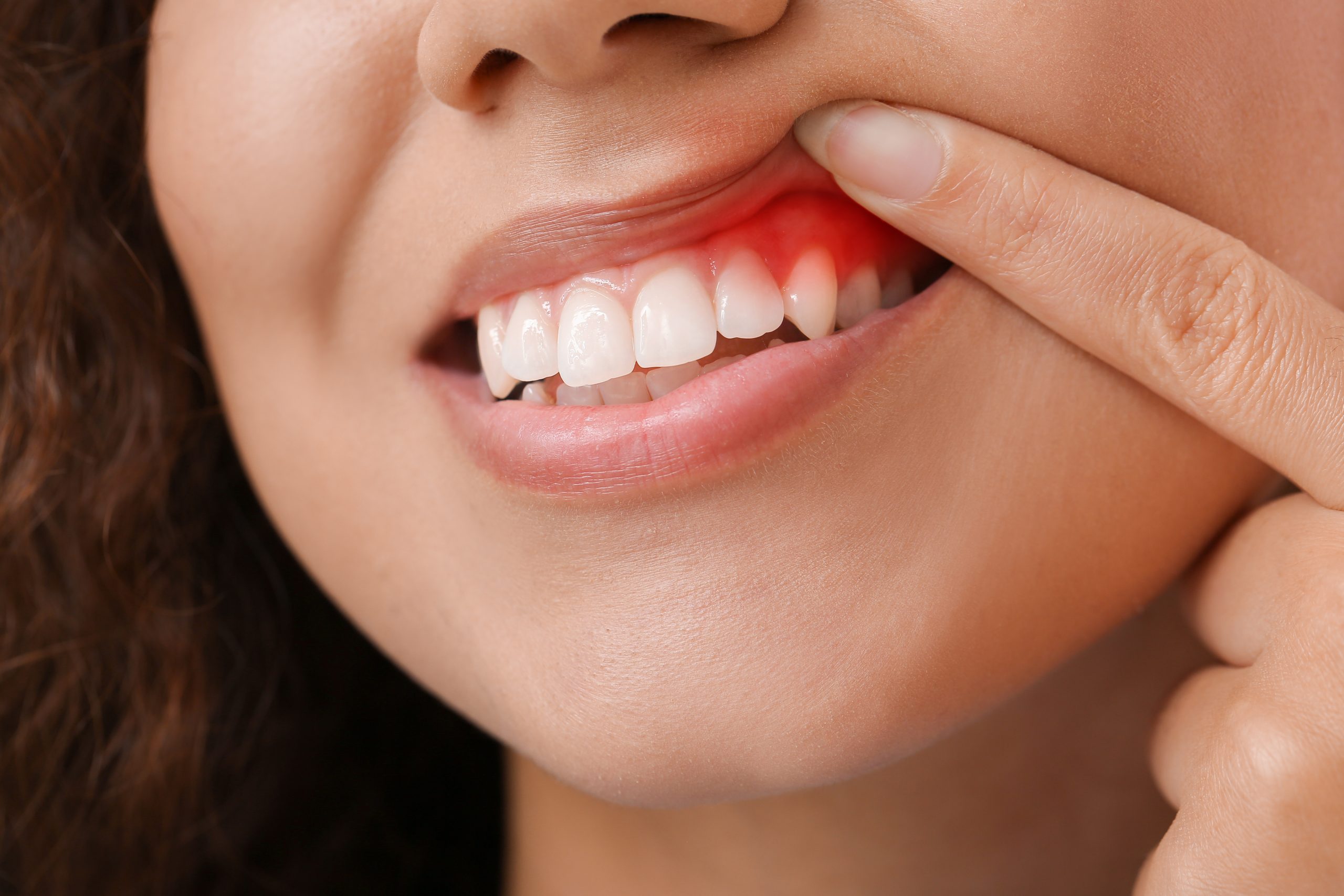
Great oral health is a must-have for total body wellness, and one condition that can significantly impact both our smile and systemic health is periodontal disease. Periodontal disease, commonly known as gum disease, affects millions of people worldwide. Recognizing the signs and symptoms of this condition is crucial for early detection and effective treatment.
Let’s explore what periodontal disease is, its causes, the signs to watch out for, and the importance of seeking professional dental care at Downtown Dental Specialty in San Diego, CA.
What is Periodontal Disease?
Periodontal disease is an aggressive, invasive infection that affects the gums and supporting bony structures surrounding teeth. It occurs when bacteria in dental plaque irritate the gums, leading to inflammation and tissue detachment around the root of the tooth. Over time, if left untreated, periodontal disease can cause and does result in receding gumlines, bone shrinkage, tooth mobility, and ultimately tooth loss.
What Causes Periodontal Disease?
The primary cause of periodontal disease is inadequate oral hygiene and/or a lack of preventative dental care such as checkups and cleanings. When plaque and tartar accumulate on the teeth and along the gumline, harmful bacteria thrive and begin to calcify under the gum tissues, leading to gum inflammation and bone loss. Other factors that contribute to the development of periodontal disease include smoking, hormonal changes, certain medications, genetics, and systemic conditions such as diabetes. If teeth are crowded or misaligned, they are typically at a higher risk of periodontitis, because of how difficult it is to keep them clean. Even if you brush and floss regularly, professional dental cleanings are needed to remove buildup from hard-to-reach spaces between your teeth.
Signs of Periodontal Disease
Recognizing the signs of periodontal disease is crucial for early intervention. If gum inflammation is caught early (before gingivitis progresses into gum disease) it can be reversed. Here are some common indicators to watch out for:
-
- Gum inflammation: Red, swollen, or tender gums are early signs of gum disease. Healthy gums should appear pink and firm (with a few exceptions.)
-
- Bleeding gums: Gums that bleed easily during brushing, flossing, or eating are a cause for concern and may indicate gum disease or chronic gingivitis. Healthy gums do not bleed. Similarly, flossing should never trigger bleeding in healthy gums.
-
- Receding gums: If you notice that your gums are pulling away from your teeth, exposing more of the tooth roots, it could be a sign of advanced gum disease. Our San Diego dentist may also comment that you have “pockets” around your teeth.
-
- Persistent bad breath: Halitosis that doesn’t improve with great oral hygiene may be a result of gum infection caused by periodontal disease. The necrotic tissues are deep below the gumlines, where a brush or floss won’t reach.
-
- Loose or shifting teeth: As gum infections progress, the supporting structures around the affected teeth weaken, leading to loose or sore teeth that start to fall out.
-
- Pus between teeth and gums: If you see pus in the gums next to your teeth, it’s a clear indication of an infection. You’ll need prompt attention from our San Diego dentist.
How Do Dentists Diagnose Periodontitis?
If you suspect you have periodontal disease, it’s essential to visit our San Diego dentist as early as possible. At Downtown Dental Specialty, our experienced team can diagnose and treat gum disease with in-house soft tissue therapies. During your visit, we will perform a thorough evaluation of your gums, measure the pocket depths and bone height around each tooth, and assess the overall condition of your soft tissues. X-rays or other diagnostic tests may also be used to determine the extent of the disease.
Treatment for Gum Disease
The treatment for periodontal disease will depend on the severity of the infection. Mild cases of gum disease can often be managed with improved oral hygiene practices, professional dental cleanings, and regular check-ups. However, advanced cases may require more intensive treatments such as scaling and root planing (deep cleanings,) antibiotic therapy, or surgical interventions like gum grafting or pocket reduction surgery. At Downtown Dental Specialty, we will tailor a treatment plan based on your specific needs.
Schedule Your Consultation
If you notice any signs of periodontal disease or have concerns about smile, don’t hesitate to schedule a consultation with Downtown Dental Specialty in San Diego, CA. New patients are always welcome!


